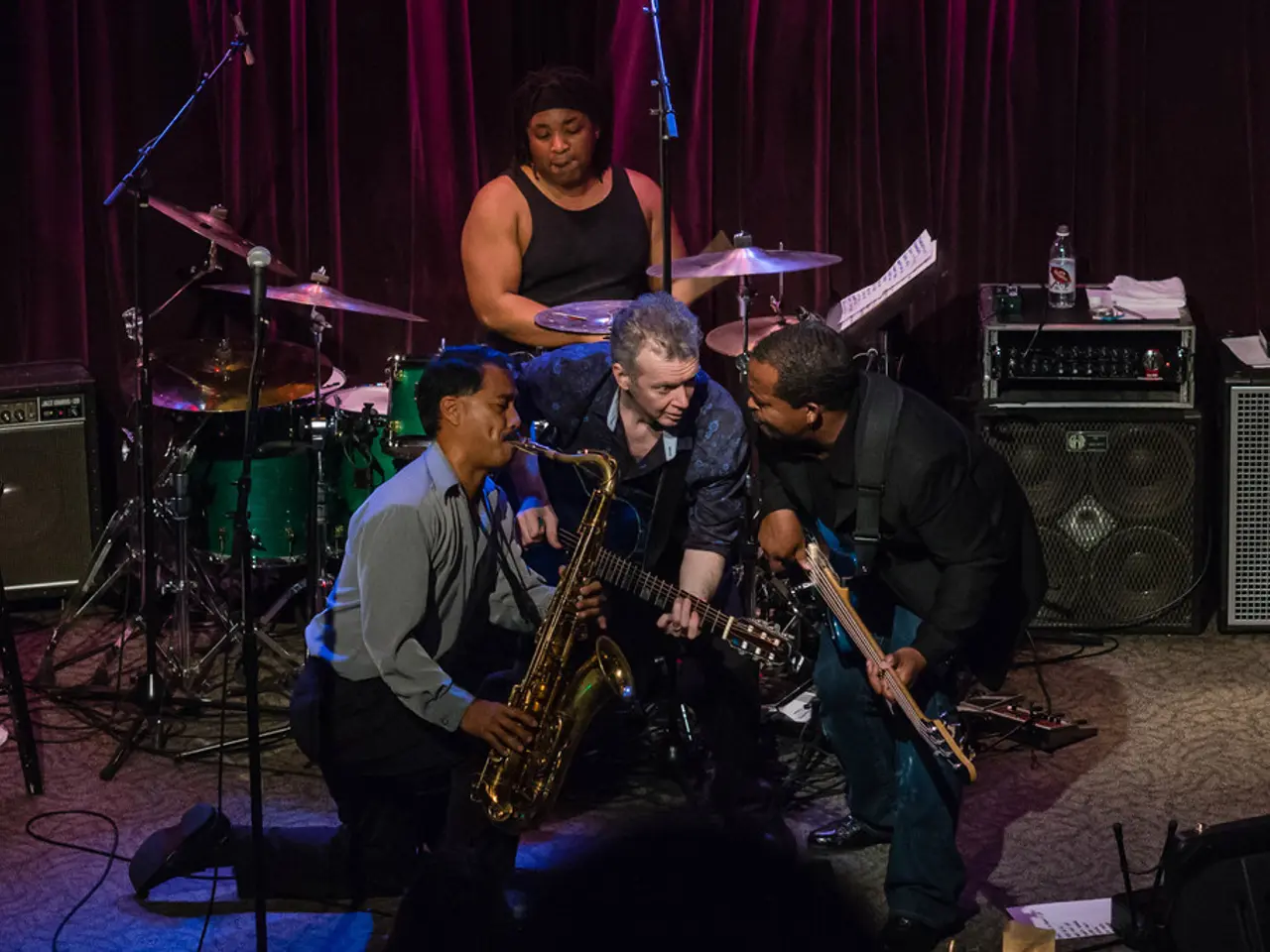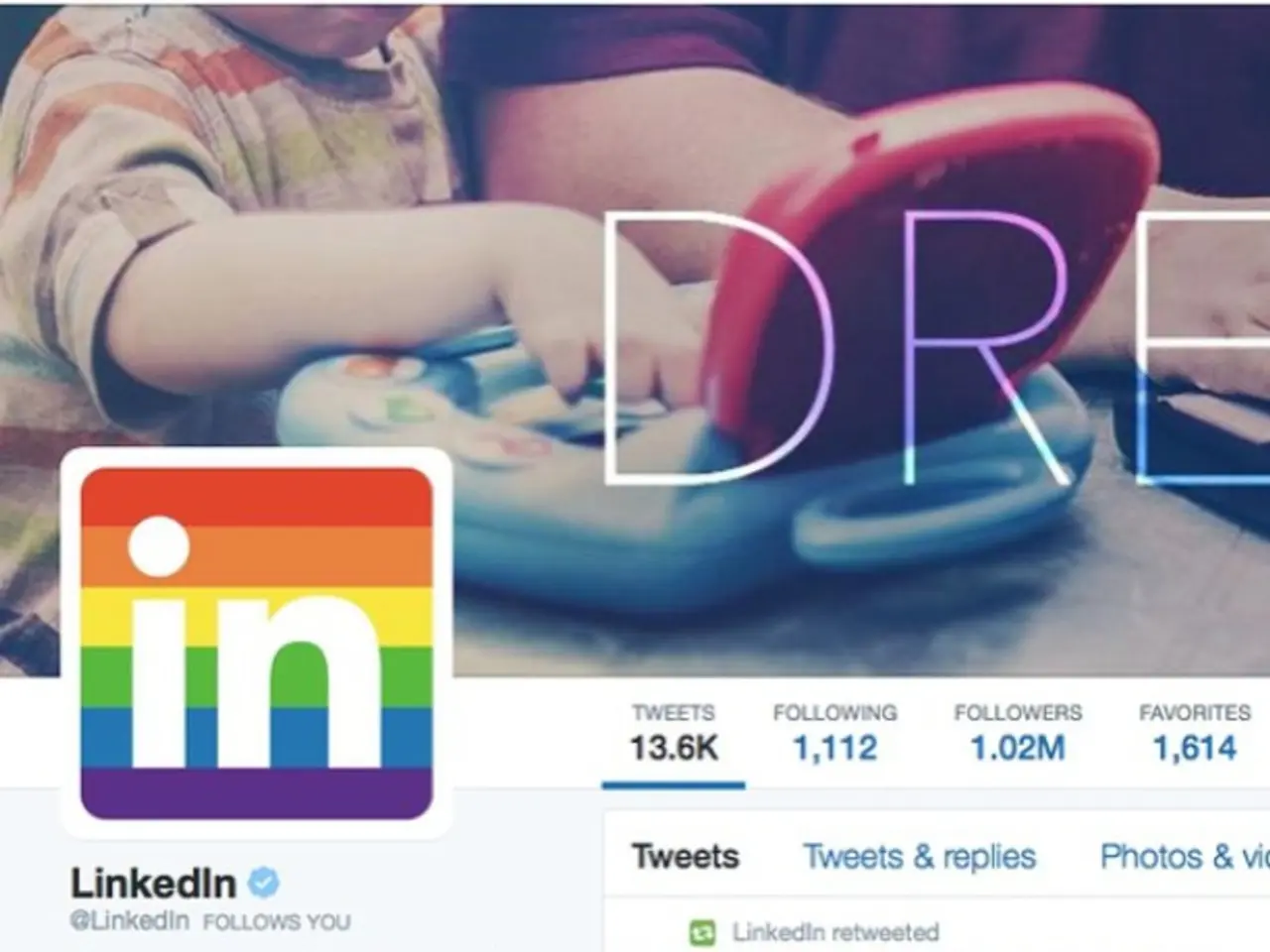AI integrations herald a fresh phase in the music industry landscape
=============================================================================
The music industry is witnessing a seismic shift with the increasing use of artificial intelligence (AI) in music production. AI tools are being employed for songwriting, generating instrumental tracks, voice cloning, and even live performance enhancement, offering new creative possibilities but also raising legal and economic challenges.
One of the key effects on the industry and musicians is the augmentation of creativity. Many producers and artists are incorporating AI as a collaborative tool to speed up production, experiment with new sounds, and generate multiple ideas rapidly. AI session musicians and AI-generated stems help create genre-bending music that blends human and machine creativity.
However, the rise of AI in music also brings forth complex issues related to copyright and ownership. U.S. copyright law currently denies protection to works created entirely by AI without human creative input. To claim copyright, humans must meaningfully edit or direct AI-generated content. This legal stance underscores the importance of human contribution, but also complicates credit and compensation.
The economic impact on human artists is another significant concern. AI-generated music is flooding streaming platforms, making up a substantial share. This surge diminishes revenue shares for human musicians because streaming royalties are allocated based on streams. Independent artists face growing difficulties in gaining visibility and earning income due to competition from AI content.
Roles such as session musicians, jingle writers, and background score composers are at risk of being undercut by cheaper, scalable AI alternatives. Some industries, like gaming, are patenting AI-driven dynamic soundtracks, which might reduce traditional composer engagements.
Fraud and integrity concerns are also looming. AI-generated music can be mass-produced and combined with bot-driven artificial streaming, skewing revenue away from genuine artists and distorting platform algorithms. This calls for enhanced regulation and transparency.
The emergence of AI-only bands is another intriguing development. Entirely AI-generated music groups are gaining millions of streams, sometimes without clear disclosure by platforms, creating a landscape where the origin of music becomes obscure and audiences may struggle to differentiate human from AI artistry.
Music producer Leo Sidran predicts that there will be a lot of music released that is difficult to attribute to a specific creator or production method. On the other hand, Mathieu Gendreau, an associate professor at Rowan University, sees AI music as being here to stay.
George Howard, an industry expert, expresses concern that AI could lead to the "eradication of the chance of sustainability for the vast majority of artists." For now, musicians are advised to capitalize on live shows where AI bands have yet to take the stage.
The ongoing debate revolves around maintaining human artists’ creative and economic roles in an increasingly AI-dominated music landscape. It's a fascinating and complex issue that the music industry is navigating with caution and curiosity.
[1] Gendreau, M. (2023). The Impact of AI on the Music Industry. Rowan University. [2] Sidran, L. (2023). The AI Revolution in Music: Opportunities and Challenges. MusicTech Magazine. [3] Howard, G. (2023). The AI-Generated Music Industry: Implications for Artists and the Music Business. Billboard. [5] Spielburg, Y. (2023). Human Artists vs. AI: Navigating the Future of Music. The Guardian.
- The advent of artificial intelligence (AI) is not just revolutionizing the music industry, but it is also causing ripples in other sectors, with AI tools being utilized in health, business, technology, and even art, leading to new creative possibilities but also raising legal and economic challenges.
- As the use of AI in music production expands, it is interesting to contemplate its potential in fields such as health, where AI could aid in diagnosing diseases or developing new treatments, or in business and technology, where it could streamline operations and enhance decision-making processes. Similarly, in art, AI could generate unique pieces or assist artists in their creative process.




